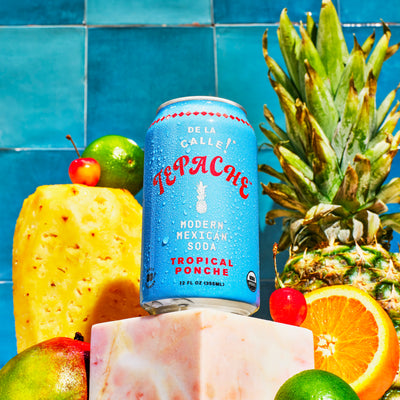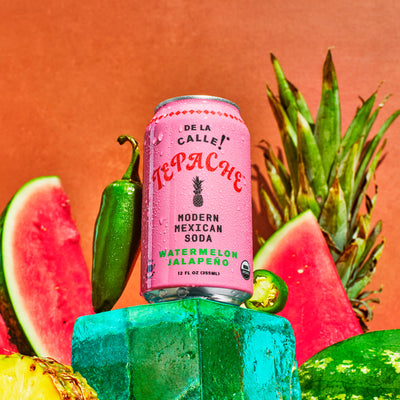How To Improve Gut Health: 12 Tips To Get Started

If you’re looking to improve your gut health, but at a loss for where to start, check out our 12 tips for a healthy gut!
1. Take Probiotics
Probiotics are living microorganisms that can help your gut maintain a healthy balance between good and bad bacteria. Probiotics are especially useful after times of immense stress on your gut.
For example, if you’ve been taking antibiotics that negatively affect your gut’s bacterial equilibrium, it might be a good idea to take a probiotic supplement to help your body improve the gut microbiome.
2. Eat Prebiotics
If you take probiotic supplements or eat probiotic-rich foods, then it’s also important to make sure you’re incorporating prebiotics into your diet as well. Prebiotics are essentially food for the healthy bacteria that live in probiotics.
The main source of prebiotics are fibers and complex carbs because they cannot be digested and are therefore able to move to the gut where they feed the bacteria.
Fruits, vegetables, and whole grains are excellent sources of prebiotics. Garlic, onions, leeks, asparagus, bananas, and barley are all prebiotic-rich foods that will ensure your gut is functioning properly.
3. Say No To Artificial Sweeteners
Sugar, especially artificial sweeteners, have a negative effect on the delicate gut microbiome (in fact, they made it to the top of our list of 3 Foods to Ditch for a Healthy Gut!). When you regularly eat sugar and artificial sweeteners, the bacterial balance in your gut is thrown off and the healthy bacterial populations cannot flourish.
Also, some artificial sweeteners such as aspartame have been shown to increase the amount of bacteria that cause metabolic disease. High fructose corn syrup has been linked to increased inflammation which can also lead to disease and cancer.
4. Eat Fermented Foods
Technically speaking, any food that is in some way changed by microbes is considered fermented. For the most part, bacteria and yeasts are the microbes involved in fermentation. They convert the sugar in food to acids and alcohols and are great for your gut.
Examples of fermented foods are yogurt, kimchi, sauerkraut, kefir, and tepache, a delicious Mexican beverage made from fermented pineapple.
Most fermented foods contain lactobacilli, a type of bacteria that is extremely beneficial for your gut. Fermented foods have been shown to improve the symptoms of irritable bowel syndrome, constipation, and other uncomfortable stomach disturbances.
5. Exercise Often
Frequent and varied exercise is a great way to improve your gut health. It’s important to get a mix of moderate intensity exercise such as running, swimming, or biking and strengthening activities such as yoga, weight lifting, or pilates nearly every day.
Exercise helps you maintain a healthy gut because it helps control weight loss and may increase variety in gut bacteria. For most people exercise is also a great way to regulate stress levels which leads to a healthier gut.
6. Limit Your Meat Consumption
Another way to improve your gut health is by limiting your meat consumption. There are several studies that have shown a correlation between healthy gut biomes and diets with less, if any, meat.
Given that people who follow a vegetarian diet are more likely to eat high amounts of prebiotic fiber, it is a good idea to substitute some of the meat in your diet with healthy, fresh vegetables to reduce gut inflammation and bacterial imbalances.
7. Be Mindful About Taking Antibiotics
Although antibiotics are often necessary to fight off disease, it’s important to be mindful about only taking them when absolutely necessary because of the negative effect they have on your gut health. Antibiotics tend to kill off bacteria in the gut, even the good bacteria that is beneficial and necessary.
8. Incorporate Beneficial Spice
Several spices have the ability to eliminate harmful bacteria in your gut without hurting the good bacteria. These spices include ginger, turmeric, and garlic. Alongside helping your gut fight off bad bacteria, spices also give your food a flavor boost that makes it easier to avoid overeating.
9. Eat Food with Polyphenols
Polyphenols are micronutrients that come from plant-based foods and are rich in antioxidants. They also aid in digestion because, much like prebiotics, bacteria in your gut use them as food. Additionally, they act as anti-inflammatories, lower blood pressure, and decrease cellular stress.
Luckily, polyphenols can be food in several tasty foods such as red grames, almonds, broccoli, and chocolate!
10. Take Care of Your Teeth
Another great way to take care of your gut is to take care of your teeth! Given that bacteria in your mouth can move through your body and end up in your gut, it’s important to make sure that all the harmful bacteria in your mouth is killed off before it can upset your digestive system.
The best way to care for your dental health is by brushing your teeth 2-3 times a day and flossing every morning and night. It’s also important to routinely get your teeth professionally cleaned to eliminate harmful bacteria that cannot be killed off by daily brushing.
11. Get All the Rest You Need
Your gut health is closely related to the overall health of your body. Given that our body does the majority of its self-healing during sleep, it’s extremely important that you are getting enough high-quality sleep to improve your gut health.
The best way to ensure that you’re getting sleep that is truly restful is to establish a consistent sleep schedule wherein you go to bed and wake up at the same time everyday to train your body and mind to adopt a healthy schedule. It’s suggested that adults get at minimum 7 hours of sleep every night.
12. Lower Your Stress Levels
Much like getting enough sleep, another way to improve your gut health is to lower your overall stress levels. Studies have shown that psychological stress can disrupt the delicate balance of microorganisms in your gut.
There are several ways to reduce stress levels including meditation, mindfulness, breathing exercises, and journaling. Generally speaking, you can lower your stress levels by finding an activity that is enjoyable and relaxing and incorporating it into your weekly schedule.
Although the two may seem unrelated, psychological stress has a large impact on the health of your gut, so it’s important to take care of both your mind and body.
Now Get To It -- Your Gut Needs You!
It’s important to be conscious of and work to improve your gut health because the health of your gut is integral to your overall health. Several changes can be made to your diet to improve your gut health such as limiting consumption of meat and sugars and incorporating prebiotics and probiotics.
There are also lifestyle changes including getting enough sleep and exercise and lowering your stress levels which can positively impact your gut health.
Although it might seem like an impossible task, there are several small changes that you can make to your daily routine that will greatly improve your gut health -- stocking up some of our tepache into your fridge is a delicious and refreshing way to start!
Sources:
https://medlineplus.gov/ency/imagepages/19529.htm
https://www.center4research.org/bacteria-good-bad-ugly/
https://www.mayoclinic.org/healthy-lifestyle/adult-health/in-depth/dental/art-20047475











